Current Projects
Country: Mali
Showing 1 - 20 of 20
20 results found
To fast-track readiness and early actions to implement the post-2020 Global Biodiversity Framework by providing financial and technical support to GEF-eligible Parties to the Convention on Biological Diversity (CBD) in their work to review and align their national targets, NBSAPs, policy frameworks, monitoring frameworks and finance with the Global Biodiversity Framework
Reverse ecosystem and water degradation and support integrated ecosystem-based development in the Volta River Basin through strengthened transboundary governance and restoration and conservation of ecosystems for sustainable livelihoods.
To enhance national-level institutional and technical capacities for the 2021-2022 UNCCD reporting process in the context of the UNCCD Strategic Framework 2018-2030 and SDG15.3
To assist GEF-Eligible Parties to the Cartagena Protocol on Biosafety to prepare and submit their Fourth National Reports on measures that each Party has taken to implement the Cartagena Protocol on Biosafety
To enable country Parties to collect necessary biophysical, socioeconomic data, establish sound reporting and monitoring systems at national level and report against the UNCCD Strategy
Improving knowledge-based management, governance and resources conservation of the Niger Basin and the Iullemeden-Taoudeni/Tanezrouft Aquifer System (ITTAS) to support IWRM for the benefit of communities and the resilience of ecosystems
To provide financial and technical support to GEF-eligible Parties to the Convention on Biological Diversity CBD in their work to develop high quality, data driven sixth national reports (6NR) that will improve national decision-making processes for the implementation of NBSAPs; that report on progress towards achieving the Aichi Biodiversity Targets ABTs and inform both the fifth Global Biodiversity Outlook (GBO5) and the Global Biodiversity Strategy of 2021 - 2030.
To Assist GEF-Eligible Parties to the Nagoya Protocol on Access and Benefit Sharing to prepare and make timely submission of their Interim National Reports on measures that each party has taken to implement the Protocol in line with Article 29
To upscale sustainable land management to combat land degradation and biodiversity loss while strengthening the capacity of local communities for replicating the SLM and good agroforestry practices in the semi-arid areas of Koulikoro region, Mali
To contribute to improved health and environment through strengthening national and regional institutions, and implementing priority chemicals and waste related interventions
To Assist GEF-Eligible Parties to the Cartagena Protocol on Biosafety to prepare and make timely submission of their Third National Reports on measures that each party has taken to implement the Protocol in line with Article 33
To support thirty nine (39) Least Developed Countries (LDCs) and Small Islands Developing States (SIDS) prepare and submit good quality initial biennial update reports to the UNFCCC that comply with the convention's reporting obligation
To strengthen the capacity for implementation of the updated POPs Global Monitoring Plan (GMP) and to create the conditions for sustainable monitoring of POPs in the African Region
To facilitate access to GEF funding by 20 countries for Enabling Activities to meet their obligations under the UNCCD a) alignment of NAPs with 10 – Year Strategy and b) Reporting and Review process
Project Objective: With the overarching goal of integrating CBD Obligations into National Planning Processes through Enabling Activities, the main objective of this project is to enable GEF eligible LDCs and SIDs to revise the National Biodiversity Strategies and Action Plans (NBSAPs) and to develop the Fifth National Report to the CBD
To Assist GEF-Eligible Parties to the Cartagena Protocol on Biosafety in Africa to prepare and make timely submission of their Second National Reports on measures that each party has taken to implement the Protocol in line with Article 33
This review should be read along with earlier review which preceded this review sheet).The objective of the project is the conservation and sustainable use of the international watershed and biodiversity of the Fouta Djallon highlands. The project will build on the experiences of the Fouta Djallon Programme coordinated by ICO-OAU which was aimed at promoting holistic approaches to integrated ecosystem management-based participatory and community-based strategies.
The Project Development objective is to protect transboundary waters in the Niger and Senegal River Basins through elimination of POPs pesticide-use and substantial reduction and elimination of other toxic pesticides used in agriculture; while augmenting agricultural productivity and net economic benefits to farmers. The Project Purpose is to demonstrate best practices for contaminant prevention and increased agricultural productivity through participatory farmer-education approaches. Key project objectives are: 1) awareness raising and establishing community baselines, 2) assessments of freshwater contaminants, 3) developing Best Practices, and 4) developing IPPM community and trainer networks.
The development goal of the project is to conserve and sustainably use biodiversity in six biosphere reserves in West Africa that are predominantly composed of savanna ecosystems. The project purpose is to systematically strengthen scientific and technical capacity for effective management of the biosphere reserves. This targeted intervention strategy has been designed to complement existing investments and projects within the biosphere reserves. The project will improve the understanding of interactions between local communities and savanna ecosystems, identify and promote sustainable use of biodiversity in pilot demonstrations, strengthen stakeholder capacity at all levels, and more effectively integrate stakeholders into the management of each biosphere reserve. The project will make extensive use of the African Network of Biosphere Reserves, AfriMAB, and, in particular, the sub-regional AfriMAB network for West Africa for regional technical and scientific information exchange, capacity building, and sharing of lessons learned.
The objective of the project is to provide participating countries targeted financial and technical support to prepare new or updated TNAs, including Technology Action Plans (TAPs), for prioritized technologies that reduce greenhouse gas emissions, support adaptation and/or enhanced resilience to climate change impacts, and are consistent with Nationally Determined Contributions (NDCs), National Adaptation Plans (NAPs) and national sustainable development objectives
Showing 1 - 20 of 20




